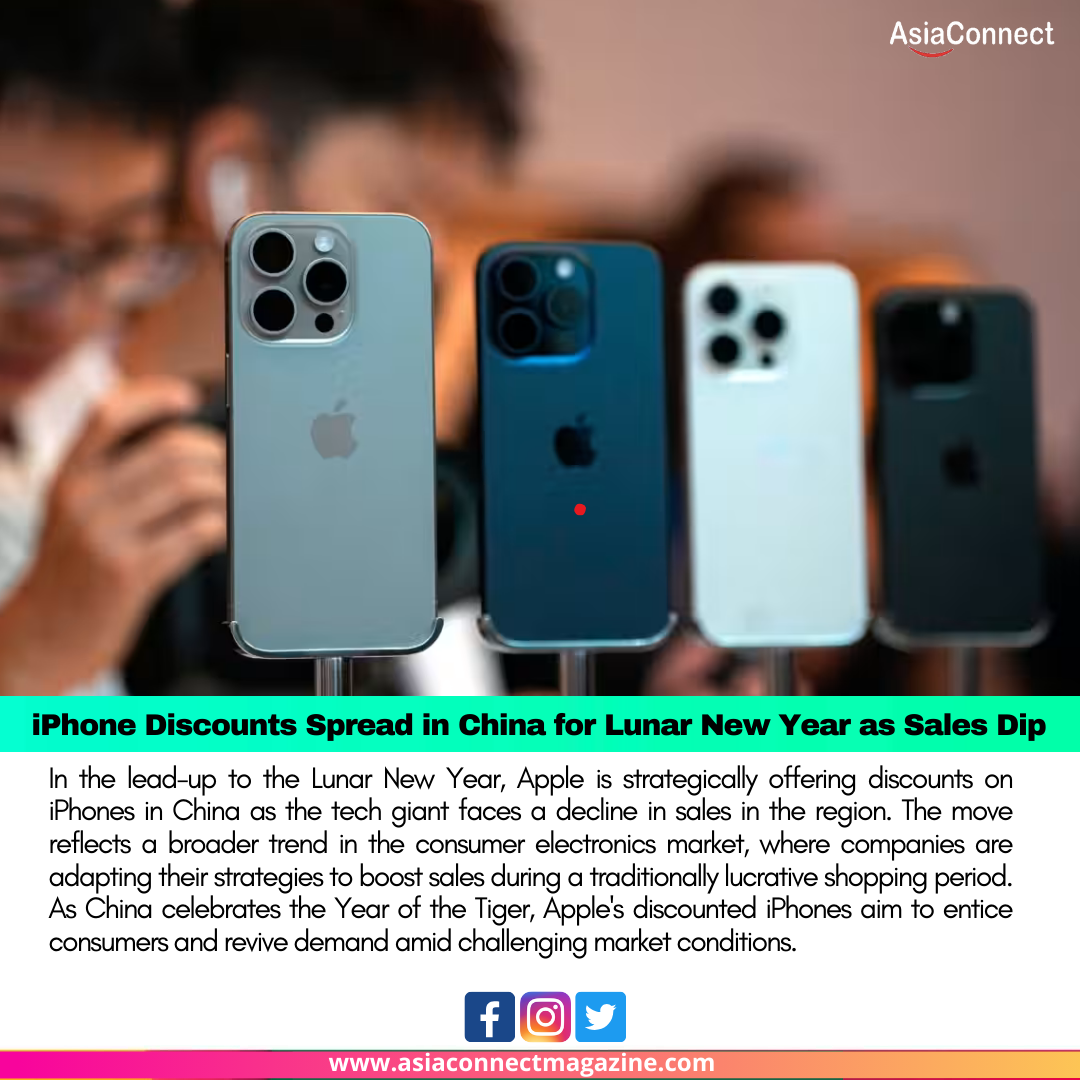In the lead-up to the Lunar New Year, Apple is strategically offering discounts on iPhones in China as the tech giant faces a decline in sales in the region. The move reflects a broader trend in the consumer electronics market, where companies are adapting their strategies to boost sales during a traditionally lucrative shopping period. As China celebrates the Year of the Tiger, Apple’s discounted iPhones aim to entice consumers and revive demand amid challenging market conditions.
China has long been a crucial market for Apple, but recent challenges, including supply chain disruptions and intensified competition from domestic brands, have contributed to a dip in iPhone sales. The Lunar New Year, a time when gift-giving is prevalent, presents an opportunity for Apple to regain momentum by tapping into the festive spirit and consumer shopping enthusiasm.
The discounted iPhone prices are part of Apple’s effort to remain competitive in a market saturated with alternative smartphone options. While Apple has traditionally positioned itself as a premium brand, the Lunar New Year discounts signal a willingness to adapt to local market dynamics and cater to a broader consumer base.
The timing of the sales promotion aligns with the tradition of exchanging gifts and making new purchases during the Lunar New Year festivities. By offering discounts on iPhones, Apple aims to make its products more accessible to a wider audience, capitalizing on the cultural significance of gift-giving during this auspicious period.
The competitive landscape in China’s smartphone market has evolved, with domestic brands offering feature-rich and affordable alternatives. As a response, Apple’s discounted iPhones provide an opportunity for consumers to experience the brand at a more attractive price point, potentially attracting new customers and retaining existing ones.
The Lunar New Year discounts also come at a time when global supply chain challenges have affected the availability of various consumer electronics. By adjusting its pricing strategy, Apple not only seeks to stimulate demand but also to navigate the complexities of supply chain disruptions that have impacted product availability and delivery timelines.
Beyond price considerations, Apple is leveraging the festive season to engage consumers through themed marketing campaigns and limited-edition offerings. Creating a sense of exclusivity and celebration around its products adds a layer of excitement to the purchasing decision, aligning with the cultural context of the Lunar New Year.
The success of Apple’s Lunar New Year strategy will likely depend on its ability to strike a balance between offering attractive discounts and maintaining the perceived value of its products. Additionally, the tech giant’s capacity to address supply chain challenges and meet increased demand during this period will play a crucial role in determining the impact of the sales promotion on its overall performance in the Chinese market.
In conclusion, Apple’s decision to discount iPhones for the Lunar New Year in China reflects the company’s strategic response to challenges in the market. By aligning with the cultural significance of the festival and adapting its pricing strategy, Apple aims to reinvigorate iPhone sales, compete with local alternatives, and strengthen its position in one of the world’s largest consumer markets. As the Year of the Tiger unfolds, the success of Apple’s Lunar New Year campaign will unfold with it, showcasing the tech giant’s adaptability and resilience in a dynamic global marketplace.





